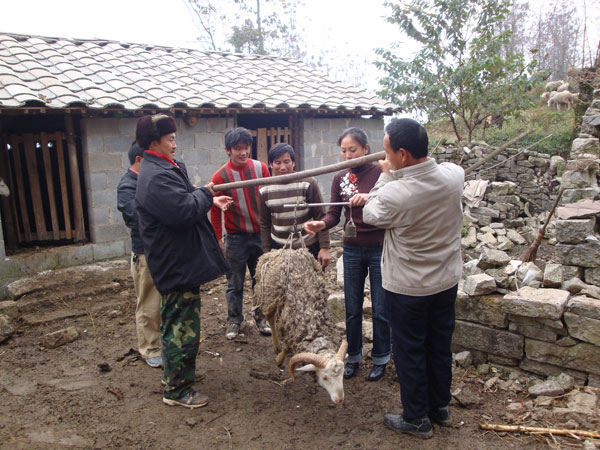Guizhou to relocate 1.5 million poor
 0 Comment(s)
0 Comment(s) Print
Print E-mail China Daily, February 14, 2012
E-mail China Daily, February 14, 2012
The government of Southwest China's Guizhou province is planning to spend 18 billion yuan ($2.85 billion) to relocate 1.5 million people living in mountainous regions in a bid to end chronic poverty there.
 |
|
Farmers at Jiangman village of Qinglong county, Guizhou province, weigh a sheep before selling it. A growing number of farmers in the area are shaking off poverty through raising sheep. |
Ethnic minorities account for about 39 percent of the province's population, and the province is eight years behind the national average development level, according to official statistics.
Zhao Kezhi, governor of Guizhou, on Monday said in a news conference in Beijing that the local government has initiated a pilot relocation project for the first batch of 100,000 people this year.
"In Guizhou, 1.5 million people live in mountains that barely provide the conditions for sustaining life," said Zhao.
Explaining the necessity of the plan, Zhao said "even if we build roads to reach them, provide drinking water to them and work to alleviate poverty there for another 50 years, the problem still might not be addressed, in my opinion".
He said the relocation plan will take nine years to complete. In order to address complications that will arise when moving farmers from mountains into townships, the project will require massive funding as well as supportive policies that boost jobs.
Per capita GDP of the landlocked and ecologically fragile province was 13,000 yuan in 2010, equivalent to 40 percent of the national average or just 17 percent of that of economically prosperous Shanghai, according to official figures.





